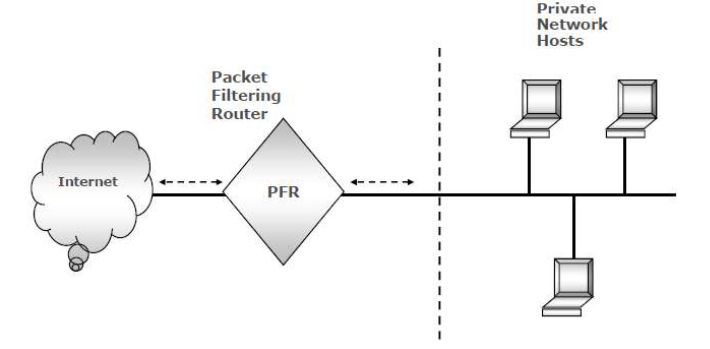7 Tips to Leveraging the Maximum from your CISSP Mentor Relationship
Date: 7 November 2017

Deciding to take the plunge and study for your CISSP qualification can be a big step. It’s often been a few years since they were a student for some who take this decision and returning to study is not always easy when jobs and family commitments are also in the mix.
Finding the right course that fits around your work and lifestyle often comes down to online training and this is where the role of, and your relationship with, your mentor becomes important throughout your study and exam preparation training.
Here are our 7 tips to help you get the most out of your CISSP mentor relationship.
1. Introduce yourself openly and break the ice
As a good ice breaker when you’ve been allocated a CISSP mentor, send him (or her) an introduction email and include your location, your current progress in your CISSP study, a list of any books that you have sourced and/or read, and the level of support you are looking to gain from your mentor. This will open up the way to a better and more rewarding partnership between you, and your mentor will feel far more free and willing to share useful tips from the start of the program through to the day you sit your exam. In addition, we would recommend connecting with your mentor via WhatsApp or email on a regular basis.
2. Be open with your mentor when discussing your daily and weekly study plan
Once you’ve established the best way to communicate with your mentor, agree an ongoing process where mentor inputs will help you refine your study plan to ensure that you work efficiently towards your exam. Be open to discussing timelines in the run up to your exam and your approach to studying the CISSP program; work out how you plan to use your available study time wisely to meet those timelines.
3. Follow a 2-way knowledge sharing approach
This approach may be a bit difficult to do but if you can, it works very well. Start by sharing technology risk and CISSP topics that you find interesting, and those that don’t interest you, with your mentor with the idea you not only connect with your mentor when you need them, but also on an ongoing basis. This will help your mentor to assess your strengths and weaknesses which they can then use to guide you more effectively in your CISSP study and exam preparation. It also helps you and your mentor feel valued from your joint interactions.
4. Keeping regular touch point meetings with your mentor
Regular communication delivers results. Setting and keeping regular meetings with your mentor will help in consolidating all points in a meeting agenda; a quick call and further discussion can often clarify any queries or improve understanding. Mentors also work full time and can sometimes be mentoring more than one CISSP student at any given point so consolidating points together and going through them in designated meetings will benefit both of you. Ideally, a monthly catch up call works well, and there is always WhatsApp (or your alternative, such as email) that can be used for ongoing discussions.
5. Asking for what you need – don’t wait for your mentor to offer or you could lose out
Your mentor cannot be expected to know what your challenges and issues are with your CISSP training. If you don’t ask your mentor for what you need, they don’t know what you’re dealing with and can’t help you. The more you ask, the more likely you will receive and abundance of tools, techniques and advice from your mentor, often his/her methods that he/she used when studying their CISSP, which may prove invaluable. However, don’t ever ask your mentor for copyrighted material – they won’t be too impressed!

6. Motivate other CISSP participants by sharing your accomplishments
The more you share and collaborate, the more you will learn and understand. All CISSP students can help each other; be open and talk about your study approach with other CISSP aspirants who are studying alongside you on Cyber Management Alliance’s CISSP Training & Mentorship program. Knowledge shared is knowledge gained. Take time out to respond to other’s study challenges and CISSP questions on the WhatsApp group. Not only may you learn more and gain valuable skills, your mentor will be interested in seeing how you are contributing and be encouraged to share further resources, tips and techniques for better interaction and support.
7. Never be afraid to ask for continuous feedback
There is no harm in scoring your results card on how much you are scoring in each CISSP domain as you practice your exam questions. Feedback is highly beneficial and will help you identify your weak areas, enabling you to focus on those and spend more time on it. Cyber Management Alliance’s trainers use a tool via which you record your scores and share on the go, receiving timely feedbacks for action and driving the necessary changes to your study plan.
Conclusion
It’s a big decision to study for your CISSP and will take dedication and commitment to succeed. But you are not alone; not only will you have fellow students studying alongside you with whom you can exchange and share ideas, study plans, theories, exam practice questions and more, your mentor is also there to help you along the way.
A key secret to success is building relationships with your mentor and fellow CISSP students so that you receive the best support and guidance to achieve a pass.
The author is a professional CISSP trainer within CMA’s training pool. He is CMA's CISSP/CISA/ISO 27001/SOX/Information Risk Management/SAP Cyber security trainer. He has an MBA (Finance), Computer Engineering, CISSP, CISA, ITIL (expert), COBIT (foundations), and SAP security qualifications.
If you are interested in exploring our CISSP Training & Mentorship classroom program details – please contact us at info@cm-alliance.com.




